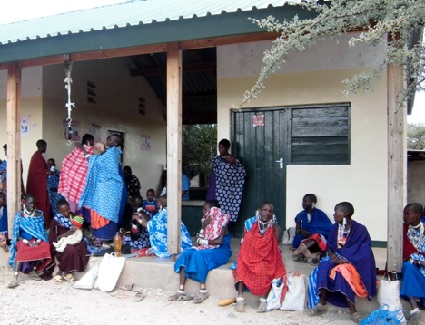Dr. Stephen and Bethany Friberg are ELCA missionaries in Tanzania, where Stephen is a physician. In this newsletter he provides an update on the health situation in the rapidly growing country. To support the Fribergs, or another of the ELCA’s over 200 missionaries in the global church, go to www.ELCA.org/missionarysponsorship.
As followers of Jesus we are all trying to see that God’s will is done on earth as it is in heaven. In missions we have to strike a balance in meeting spiritual, physical, emotional, economic and community needs. Jesus calls us to care for the whole person.
In 50 years, Tanzania’s population has increased from 8 million to 44 million. Limiting family size and spacing children reduces poverty and improves health. Infant mortality in Tanzania is still 10 percent (one in 10 children do not reach the age of 5). When populations double every 20 years, it is impossible for employment and infrastructure to keep up. Fortunately, as women get access to education, they choose to have smaller families. In 1994, the average Tanzanian family had eight children. Ten years later, the average had fallen to four per family. The U.S. government provides free contraception to women, and we believe this is one of the most effective forms of aid to African countries.
Educating and encouraging Maasai women to benefit from contraception is an important component of our medical work. In our area, infant mortality is as high as 20 percent. Women begin childbearing in the early teen years when the risk of complications is high. Traditionally, Maasai men have multiple wives and very large families. With global warming (the glaciers on top of Mount Kilimanjaro are rapidly disappearing) and surging population growth, there is significant environmental degradation and loss of livestock. Malnutrition is common in women and children during the five-month dry season.
Ten years ago there was tremendous cultural resistance to family planning. Only women with eight or 10 children requested it, and it had to be done secretly. There were many years of repeating the message with little to show for it. During the drought of 2009 when half the cattle died, we distributed milk powder and high protein flour to pregnant and nursing mothers. This was an ideal situation to explain the advantages of small families. Many women were convinced and suddenly we began to run short of Depo-Provera injections, oral contraception, and five-year implants. It is very encouraging that most of the younger men now support this.
We thank you for being connected to our work here: 10 small medical clinics, two camel projects, 60 women in the bead project, scholarships for theological training, hosting mission teams to assist church construction. Often we see God’s Spirit open unexpected opportunities and then provide the resources.
ENTURUBARE ENKAI. GO WITH GOD.
Steve Friberg, M.D.
Ketumbeine, Tanzania












on April 2nd, 2013 at 10:01 pm
What a wonderful message Steve. Note to all readers: Asante Network is selling these Maasai women beaders beautiful jewelry, pastor’s stoles Christmas ornaments and wine bags. Check our website for the locations of upcoming African Bazaars.